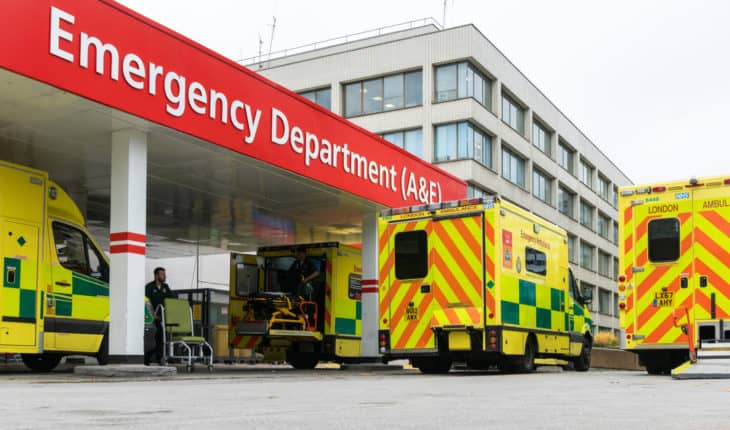The latest Emergency Department performance figures for September 2021 published today by NHS England show the highest number of 12-hour stays on record, the highest number of four-hour stays on record, and the worst four-hour performance ever recorded.
The data show in September 2021 there were 1,392,542 attendances to Type 1 Emergency Departments in England.
Four-hour performance has deteriorated for the sixth consecutive month, once again reaching a record low. Just 64% of patients in Type 1 Emergency Departments were admitted, transferred or discharged within four-hours.
A record breaking 5,025 patients stayed in an Emergency Department for 12-hours or more from decision to admit to admission. This is an 80% increase on the previous month, August 2021, and it is the highest number of 12-hour stays since records began and is almost a third higher than the previous highest, recorded in January 2021. The number of 12-hour stays from time of arrival is not published but is likely to be significantly higher.
Dr Katherine Henderson, President of the Royal College of Emergency Medicine, said:
“This data is bleak and is a stark warning of the crisis that we are heading towards this winter.
“Dangerous crowding has returned to Emergency Departments, exit block is preventing a flow of patients through the hospital, and there have been widespread reports of ambulances queuing outside hospitals facing long handover delays. For patients, this means long and potentially frustrating waiting times in the Emergency Department. For staff it is incredibly challenging, as they do all they can to continue to deliver care quickly amid rising attendances and pressures.
“At the same time the health service continues to manage covid as cases have been rising steeply, with the NHS now treating around 14 times as many patients as the same time last year.
“Trusts also continue to deliver elective care but there is a real threat that in the coming months this may once again have to be paused to manage pressures on urgent and emergency care and the rising number of covid cases.
“The winter presents a significant challenge for the health service; staff are increasingly worried about the NHS‘ ability to cope. The Government need to recognise the potential crisis and support the health and care service as it tackles the challenges ahead.
“NHS England’s Urgent and Emergency Care Recovery 10 Point Action Plan is a blueprint on how to manage these pressures in the short and medium term. Trusts must do all they can to follow this guidance to mitigate pressures across the system and prevent further deterioration in performance.
“But the underlying cause of all of the problems facing the NHS is a decade of underfunding. The health service has for a long time struggled to meet the demand of the population. It is short on staff across the board; capacity has not risen in line with demand. Existing staff are exhausted, with many looking to leave after having to shoulder an ever-increasing workload. So far promises to increase the workforce have fallen short. The forthcoming spending review is an opportunity for the government to signal it’s intent to boost staffing with a long-term workforce plan and rescue the NHS in the long run.”
- No Mind Left Behind: Support the Carers - 4th May 2025
- Climate change causes longer pollen seasons in capital cities - 4th May 2025
- The Hidden Toll of Caregiving on Joint Health and Well-being - 3rd May 2025






